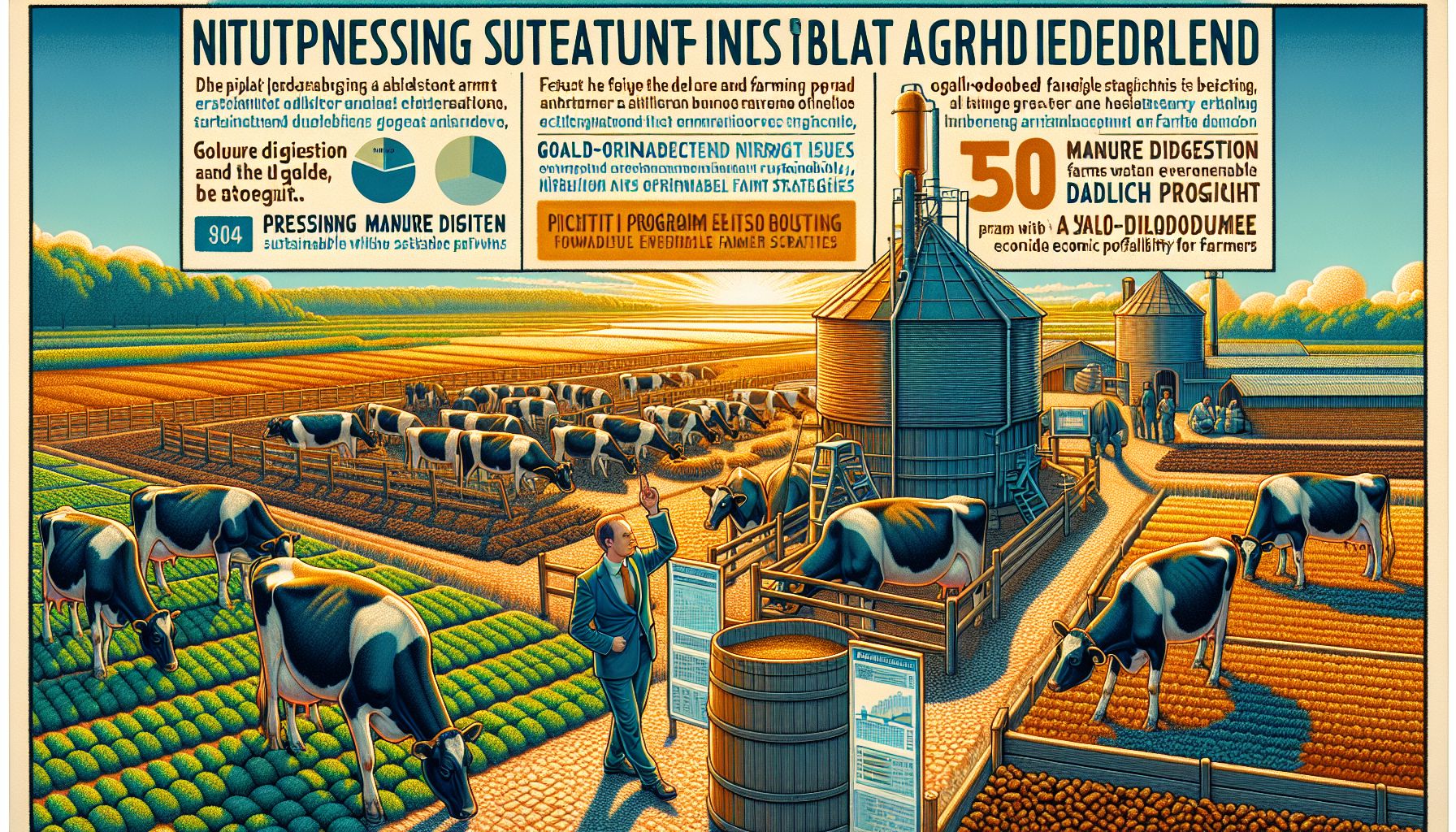Dutch Innovation Tackles Manure Crisis: Gelderland's Sustainable Agriculture Push

Gelderland, Friday, 12 July 2024.
Gelderland, a Dutch province, is pioneering innovative approaches to address the pressing manure and nitrogen issues in agriculture. Deputy Harold Zoet highlights manure digestion and goal-oriented farming as key strategies, aiming to balance environmental sustainability with economic viability for farmers. A pilot program involving 150 dairy farms is set to test these new methods, marking a significant shift towards data-driven, sustainable farming practices.
Manure Digestion: A Sustainable Solution
Manure digestion, also known as anaerobic digestion, is at the forefront of Gelderland’s strategy to manage manure. This process involves breaking down organic material, such as livestock manure, in the absence of oxygen to produce biogas and digestate. The biogas can be used as a renewable energy source, while the digestate can serve as a nutrient-rich fertilizer. Harold Zoet emphasizes that this method not only helps in reducing the environmental impact of manure but also provides a sustainable way to recycle nutrients back into the soil.
Advantages of Manure Digestion
One of the primary advantages of manure digestion is its ability to reduce greenhouse gas emissions. By capturing methane, a potent greenhouse gas, and using it as energy, the process significantly lowers the carbon footprint of livestock farming. Additionally, the digestate produced is a more stable form of fertilizer, which minimizes the risk of nutrient leaching into waterways. This makes manure digestion a win-win solution for both farmers and the environment.
Pilot Program in Lochem
The pilot program launched at a dairy farm in Lochem exemplifies the practical application of these innovations. Since spring, the farm has been using a manure digester to convert waste into valuable resources. Continuous measurement of ammonia concentration ensures that the farm meets emission reduction targets. This initiative not only showcases the technical feasibility of manure digestion but also serves as a model for other farms in the region.
Goal-Oriented Farming for Better Outcomes
In addition to manure digestion, Gelderland is also focusing on goal-oriented farming. This approach shifts from prescribing specific farming practices to setting environmental targets, allowing farmers the flexibility to achieve these goals in their own way. According to Zoet, this method encourages innovation and helps farmers adopt sustainable practices that are tailored to their unique conditions.
The Role of Data in Sustainable Agriculture
Data plays a crucial role in goal-oriented farming. The ‘Monitor Duurzame Landbouw Gelderland’ report translates general policy objectives into measurable goals at the farm level. For example, it calculates specific performance metrics for ammonia, CO2, and nitrogen, enabling farmers to understand and meet their sustainability targets. This data-driven approach not only provides clarity but also empowers farmers to make informed decisions.
Collaborative Efforts and Future Prospects
Zoet stresses the importance of collaboration between farmers, government bodies, and research institutions. The pilot program involving 150 dairy farms is a testament to this collaborative spirit. With a funding request of EUR 2.7 million from various governmental agencies, this initiative aims to scale and refine sustainable farming practices across Gelderland. Zoet hopes that these efforts will serve as a blueprint for other regions in the Netherlands and beyond.
Balancing Economic and Environmental Goals
While the transition to sustainable farming practices involves initial costs, the long-term benefits for both the environment and the agricultural sector are significant. Zoet acknowledges that some farmers may choose to exit the industry due to the additional costs of manure disposal. However, he underscores the importance of providing adequate compensation for these farmers, ensuring that the economic impact is managed alongside environmental goals.
Conclusion
Gelderland’s innovative approaches to manure and nitrogen management highlight the province’s commitment to sustainable agriculture. By embracing manure digestion and goal-oriented farming, Gelderland is setting a precedent for other regions to follow. These initiatives not only address immediate environmental concerns but also pave the way for a more resilient and sustainable agricultural sector in the future.

